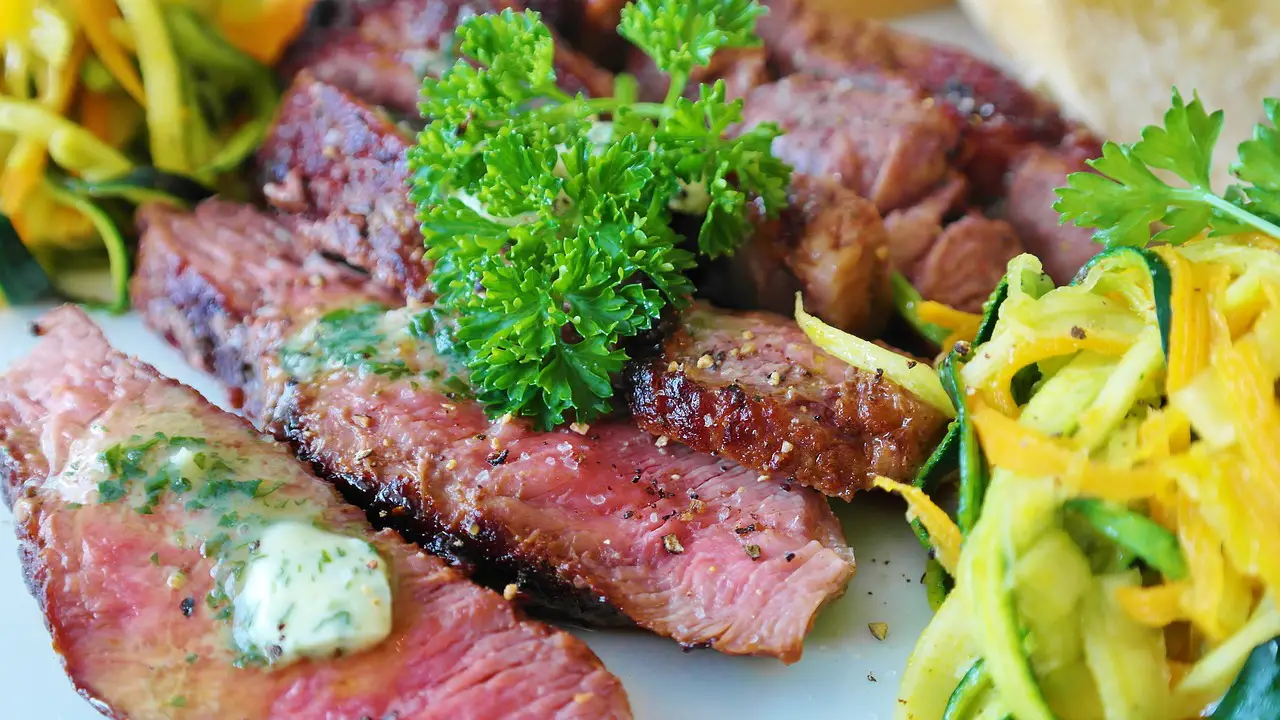Kangaroo meat has been a staple food in Australia for thousands of years, but in recent years it has emerged as a trendy and healthy alternative to beef in many parts of the world. Kangaroo meat is leaner and healthier than beef, with less fat and more protein per serving. It is also more environmentally friendly, as kangaroos produce less methane than cows and require less land and water to produce the same amount of meat.
However, despite its many benefits, kangaroo meat is still relatively unknown and underutilized in many parts of the world. Some people are hesitant to try it due to cultural or ethical concerns, while others simply prefer the taste and texture of beef. In this article, we will explore the pros and cons of kangaroo meat compared to beef, and help you make an informed decision about which meat is right for you.
Nutritional Value
When it comes to nutritional value, both kangaroo meat and beef have their own unique set of benefits. Kangaroo meat is known to be a leaner source of protein, with lower fat content and higher protein content compared to beef. This makes it an ideal choice for those who are watching their calorie intake or looking for a healthier alternative to beef.
On the other hand, beef is known to be a rich source of iron, zinc, and vitamin B12. These essential nutrients are important for maintaining a healthy immune system and preventing anemia. While kangaroo meat does contain some of these nutrients, beef is generally considered to be a more concentrated source.
Below is a table comparing the nutritional value of 100g of kangaroo meat and beef:
| Nutrient | Kangaroo Meat | Beef |
|---|---|---|
| Calories | 98 | 250 |
| Protein | 22g | 26g |
| Fat | 1.4g | 20g |
| Iron | 2.8mg | 2.5mg |
| Zinc | 4.2mg | 4.0mg |
| Vitamin B12 | 2.0mcg | 2.1mcg |
Overall, both kangaroo meat and beef can be a healthy addition to a well-balanced diet. While kangaroo meat may be a better choice for those looking for a low-fat, high-protein option, beef is a great source of important nutrients like iron, zinc, and vitamin B12.
Environmental Impact
When it comes to environmental impact, both kangaroo meat and beef have their pros and cons. Here are some of the key factors to consider:
- Land Use: Kangaroos are wild animals that roam freely and require no additional land for grazing. In contrast, beef cattle require large amounts of land for grazing and feed production. This means that kangaroo meat has a lower impact on land use than beef.
- Greenhouse Gas Emissions: Beef production is a significant contributor to greenhouse gas emissions, particularly due to the methane produced by cattle. Kangaroos, on the other hand, produce much less methane and have a lower impact on greenhouse gas emissions.
- Water Use: Beef production requires significant amounts of water for both grazing and feed production. Kangaroos require less water than cattle, making kangaroo meat a more water-efficient choice.
- Transportation: Kangaroos are native to Australia, so if you are located outside of Australia, the transportation required to get kangaroo meat to your location may have a higher environmental impact than locally sourced beef.
Overall, while kangaroo meat has some environmental advantages over beef, it is important to consider the impact of transportation and other factors when making a decision about which meat to consume.
Ethical Considerations
When it comes to choosing between kangaroo meat and beef, there are several ethical considerations to take into account. Here are a few key points to consider:
- Sustainability: Kangaroos are native to Australia and are considered a pest in some areas due to their high population numbers. As a result, the Australian government has implemented strict regulations on kangaroo hunting to manage their numbers and prevent overpopulation. In contrast, beef production requires large amounts of land, water, and other resources, which can contribute to deforestation and other environmental issues.
- Animal welfare: The treatment of animals in the meat industry is a controversial topic. While kangaroo hunting is often portrayed as cruel, it is important to note that kangaroos are wild animals and are not subject to the same conditions as farmed animals. In addition, kangaroo hunting is regulated by the Australian government to ensure that it is done in a humane manner. However, some people may still have concerns about the welfare of wild animals being hunted for meat.
- Cultural significance: Kangaroos are an important part of Australian culture and are seen as a national symbol. Some people may feel that hunting and consuming kangaroo meat is disrespectful to this cultural significance. On the other hand, beef has a long history of being consumed in many cultures around the world.
Overall, the decision to consume kangaroo meat or beef comes down to personal values and beliefs. While there are valid ethical considerations to take into account, it is important to avoid making exaggerated or false claims about either option.
Taste and Cooking
One of the most significant differences between kangaroo meat and beef is the taste. Kangaroo meat has a distinct flavor that is often described as gamey or earthy. The taste of beef, on the other hand, is more familiar and less intense.
When it comes to cooking, kangaroo meat requires a bit more attention than beef. It is a lean meat with very little fat, which means it can dry out quickly if overcooked. To avoid this, it is recommended to cook kangaroo meat to medium-rare or medium.
Beef, on the other hand, is more forgiving when it comes to cooking. It has a higher fat content, which makes it more tender and juicy. It can be cooked to a range of temperatures, from rare to well-done, depending on personal preference.
When it comes to preparation, both meats can be cooked in a variety of ways, including grilling, roasting, and frying. However, due to its leanness, kangaroo meat benefits from marinating before cooking to add flavor and moisture.
Overall, the taste and cooking of kangaroo meat and beef are quite different. While kangaroo meat has a unique flavor and requires more attention when cooking, beef is more versatile and forgiving.
Availability and Cost
When it comes to availability, beef is the clear winner. It is readily available in most grocery stores and restaurants worldwide. On the other hand, kangaroo meat is not as widely available and can be difficult to find in some areas. It is more commonly found in specialty meat markets and some high-end restaurants.
Despite its limited availability, kangaroo meat is often priced competitively with beef. In fact, in some regions, it can be cheaper than beef due to its lower demand and lower production costs. However, in areas where kangaroo meat is not readily available, the cost can be significantly higher than beef.
It is also worth noting that the cost of kangaroo meat can vary depending on the cut and quality. For example, kangaroo fillets are generally more expensive than ground kangaroo meat.
Overall, while kangaroo meat may be a cost-effective alternative to beef in some regions, it may not be as readily available or affordable in others.
Conclusion
After comparing kangaroo meat and beef, it is clear that both have their own unique benefits and drawbacks. Ultimately, the choice between the two comes down to personal preference and dietary needs.
On the one hand, kangaroo meat is a lean protein source that is low in fat and high in nutrients such as iron and zinc. It is also considered to be more environmentally sustainable than beef due to the lower impact of kangaroo farming on land and water resources.
On the other hand, beef is a more widely available and affordable option that is rich in protein, iron, and vitamin B12. It is also a versatile ingredient that can be used in a wide variety of dishes.
When it comes to taste, some people prefer the gamey flavor of kangaroo meat while others prefer the more familiar taste of beef. It is important to note that kangaroo meat can be tougher and require different cooking methods than beef.
In summary, both kangaroo meat and beef can be part of a healthy and balanced diet. It is up to the individual to decide which option best suits their taste preferences, nutritional needs, and budget.


